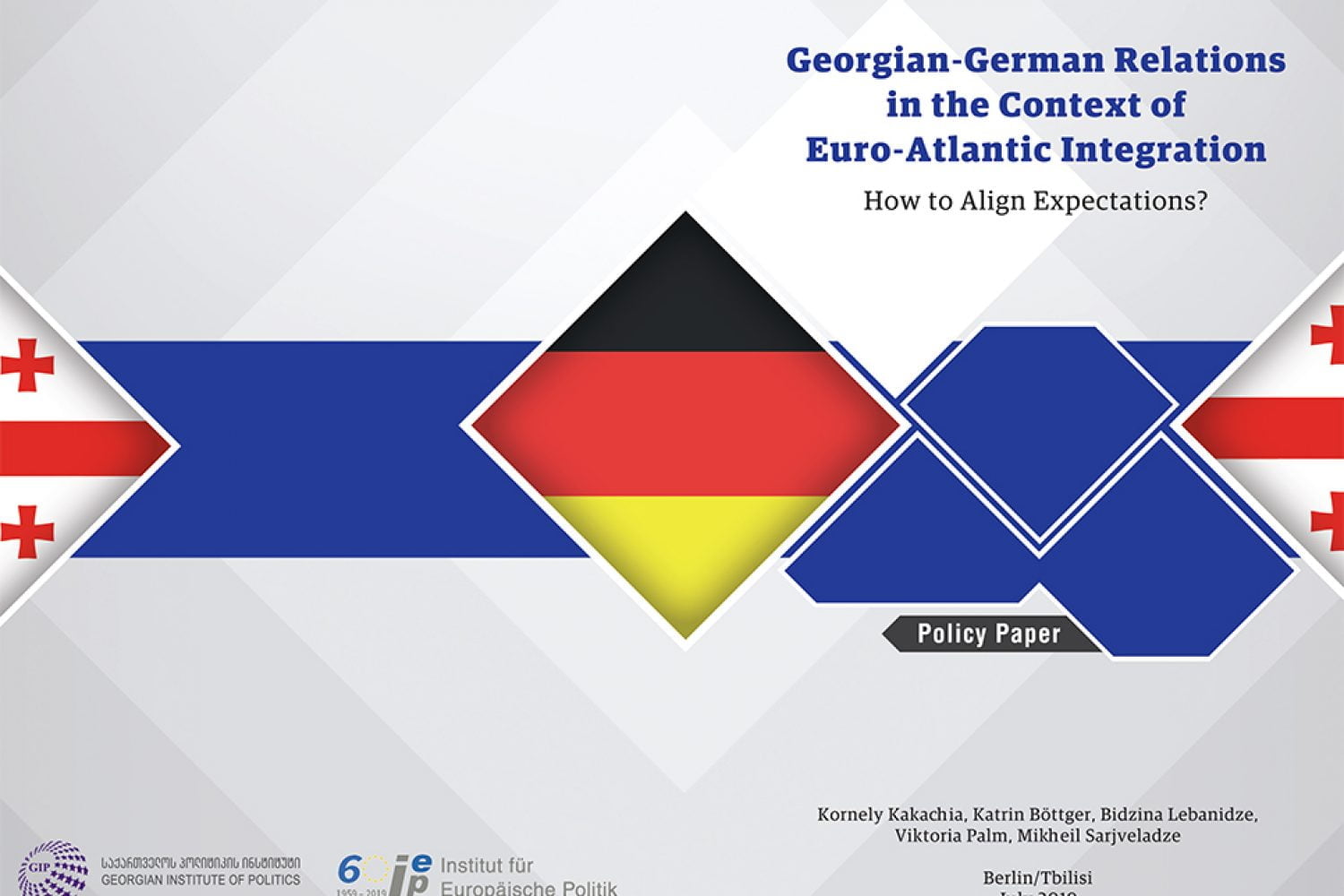2019-07-18 12:03:37
Policy Paper, July 2019
Georgian Institute of Politics / Institut für Europäische Politik
Georgia and Germany enjoy a relatively close bilateral relationship marked by historical bonds and political and cultural affinities. However, bilateral relations are currently characterized by a sense of dissatisfaction and policy mismatches in three somewhat interrelated areas: relations with Russia, Georgia’s NATO aspirations, and Georgia’s European integration process. These differences in positions are mainly based on diverging foreign policy preferences, asymmetries in bilateral relations, and mismatched mutual expectations and (mis)perceptions.
On the Georgian side, a certain degree of scepticism about Germany’s role in Georgia’s Euro-Atlantic integration project prevails. Some voices in Georgia’s political class even question the trustworthiness of Germany as a reliable partner and criticise Germany for having an indulgent attitude towards the Russian Federation. The Georgian side also calls for better rewards for its achievements and new incentives regarding the reform process. Germany, on the other hand, feels overwhelmed to some extent by Georgia’s eager drive towards Euro-Atlantic structures and prefers a slower paced approach. Although Georgia has managed to establish itself as a frontrunner in the post-Soviet space in terms of democracy and good governance, the German side insists on full implementation of the respective regulations as a precondition for any further approximation.
While Germany and Georgia will not be able to solve all their differences anytime soon, an improved communication and readiness to better comprehend each other’s concerns and interests will help to improve relations and reduce misperceptions. Increased cooperation in the economic sphere and closer contacts on the societal level could also help overcome mutual scepticism and energize bilateral relations.




